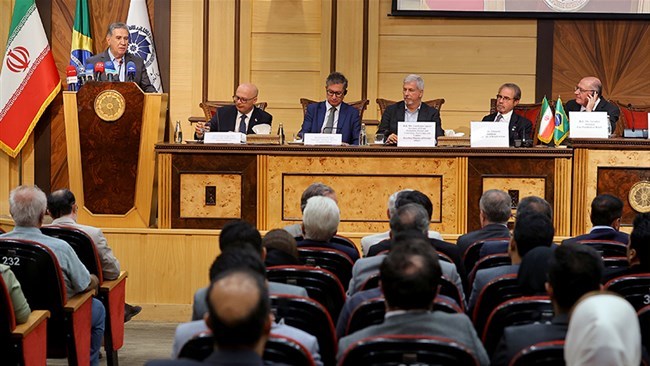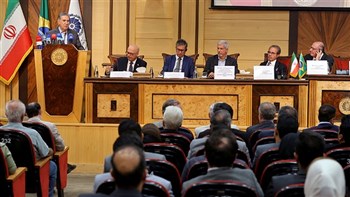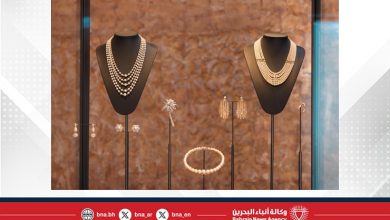Brazil urged to balance trade with Iran


Iranian private sector has called on Brazil to balance trade with Iran.
In a business forum of Iran and Brazil in Iran Chamber of Commerce, Industries, Mines, and Agriculture (ICCIMA) headquarters in Tehran on Wednesday, the two sides discussed bilateral cooperation.
The business forum was attended by Brazilian Vice President Geraldo Alckmin who had come to the Iranian capital to participate in the inauguration of Iran’s new president Masoud Pezeshkian.
Addressing the forum, the ICCIMA President Samad Hassanzadeh referred to Iran’s potentials in different areas, including pharmaceutical products, energy, petrochemical, food, and agricultural industries, as well as techno-engineering services, which he believed could be used to expand cooperation with Brazil.
He highlighted that Iran is ready to increase economic relations with friendly countries, including Brazil.
Hassanzadeh reiterated that the lack of free and preferential trade agreements between Iran and Brazil is among the main problems hindering economic relations between Tehran and Brasilia.
Another person to address the trade forum was Brazil’s Ambassador to Iran Eduardo Ricardo Gradilone Neto who believed that the future is bright for relations between Iran and Brazil.
He said that the two countries can cooperate on trading fruits, pistachio, and caviar and on mining industry as well.
Fakhreddin Amerian, the head of Iran-Brazil Joint Chamber of Commerce, once again highlighted the need for signing free and preferential trade agreements between Iran and Brazil, adding that the two countries also need to solve the problems on the way of money exchanges and banking relations.
He called on the Brazilian side to cut customs tariffs on Iranian exports of carpets and other products to the country.
Brazil is exporting some 6-7 billion dollars worth of products to Iran while Iran’s exports to the Latin American country is as low as nearly $100 million which have to be increased to $1 billion, the ambassador said.
He also urged the need for both countries to engage in more barter trade.





